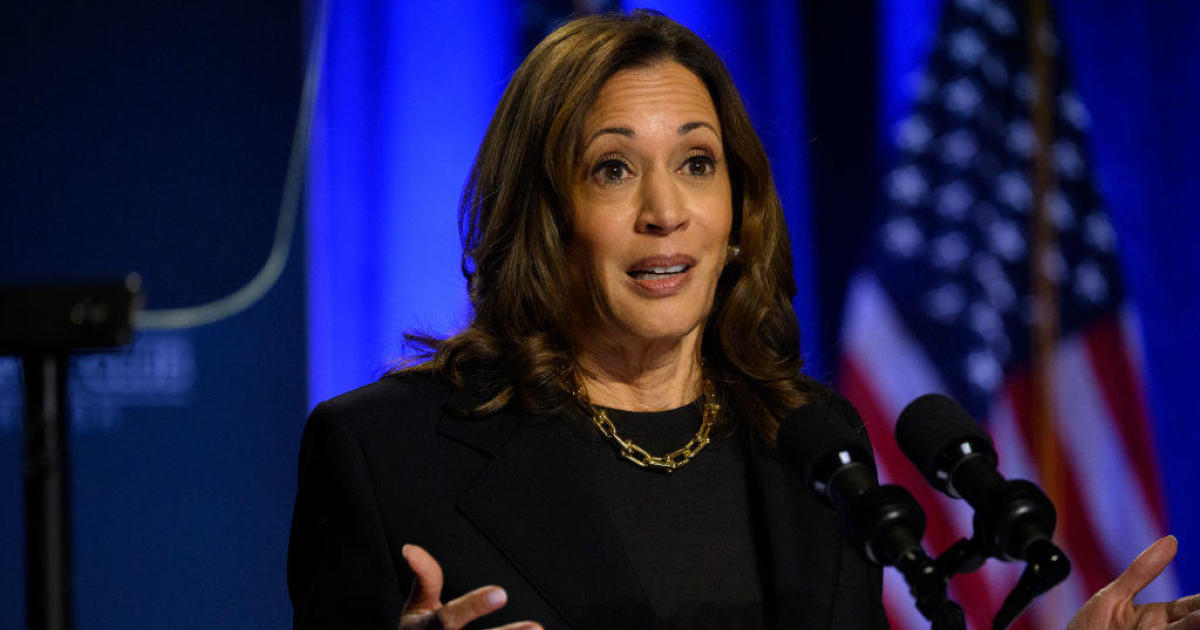Vice President Kamala Harris delivered a speech in Pittsburgh on Wednesday, focusing on her economic plan and emphasizing her commitment to reducing costs for the middle class. In her address, Harris positioned herself as a pro-business, pragmatic capitalist, drawing inspiration from Franklin Roosevelt and advocating for bold, persistent experimentation in economic policy. She emphasized the need for practical solutions that are not limited by ideology and expressed a willingness to incorporate good ideas from any source.
Recent polling by CBS News indicates that Harris is narrowing the gap with former President Donald Trump among voters who prioritize the economy in their voting decisions, particularly those who believe the economy is currently in good shape or improving. Harris reiterated several proposals that she has previously announced, including measures to address housing affordability, such as a federal ban on price gouging and expanded tax credits for young parents and aspiring small business owners. She also signaled her intention to build on or expand existing Biden administration policies if elected.
Harris outlined a three-pillar economic plan that includes expanding or restoring tax cuts implemented during the Biden administration, such as the earned income tax credit and child tax credit. Additionally, she pledged to work towards expanding Medicaid, reducing prescription drug costs, and prioritizing union contracts for government projects. The Vice President also emphasized the importance of fostering domestic manufacturing and innovation through tax incentives, with a focus on key sectors like bio-manufacturing, artificial intelligence, and Blockchain technology.
During an interview with MSNBC, Harris addressed the financing of her economic plans, proposing a corporate tax rate hike while assuring that no taxes would be raised for individuals earning under $400,000. She emphasized the principle of everyone paying their fair share while acknowledging and supporting success. Harris also indicated her intention to continue the Biden administration’s antitrust approach, vowing to crack down on unfair mergers and acquisitions that could harm consumers.
One particular area of focus for Harris is combatting the rising cost of living in America. Drawing on her own middle-class upbringing, she underscored the challenges faced by families in meeting their financial obligations. While acknowledging the positive economic indicators touted by the Biden administration, Harris recognized that the cost of living remains a significant concern for many Americans. She highlighted the need for policies that address this issue and ensure economic stability for working families.
Inflation rates have fluctuated in recent years, with a peak of 9.1% in June 2022 during the Biden administration before gradually decreasing to 2.5% as of August 2024. Former President Trump has criticized Harris over inflation levels, attempting to link her to the economic challenges faced by American families. Harris, in turn, emphasized her differences with Trump on economic policy and highlighted her commitment to supporting working people and the middle class.
Businessman and investor Mark Cuban, who attended Harris’ speech, praised her economic plan as clear and precise but called for more specifics on healthcare and prescription drug pricing. Cuban emphasized the importance of effective communication in conveying the benefits of Harris’ economic vision to voters. He noted that convincing voters to support her plan over Trump’s would take time and require a strategic messaging approach leading up to the election.
Overall, Harris’ economic platform emphasizes a combination of tax reforms, investment in key industries, and regulatory measures to promote economic growth and support working families. Her pragmatic, pro-business approach seeks to address the challenges faced by the middle class while positioning the United States for leadership in emerging sectors. As the election approaches, Harris will continue to communicate her economic vision to voters and differentiate her policies from those of her opponents.









